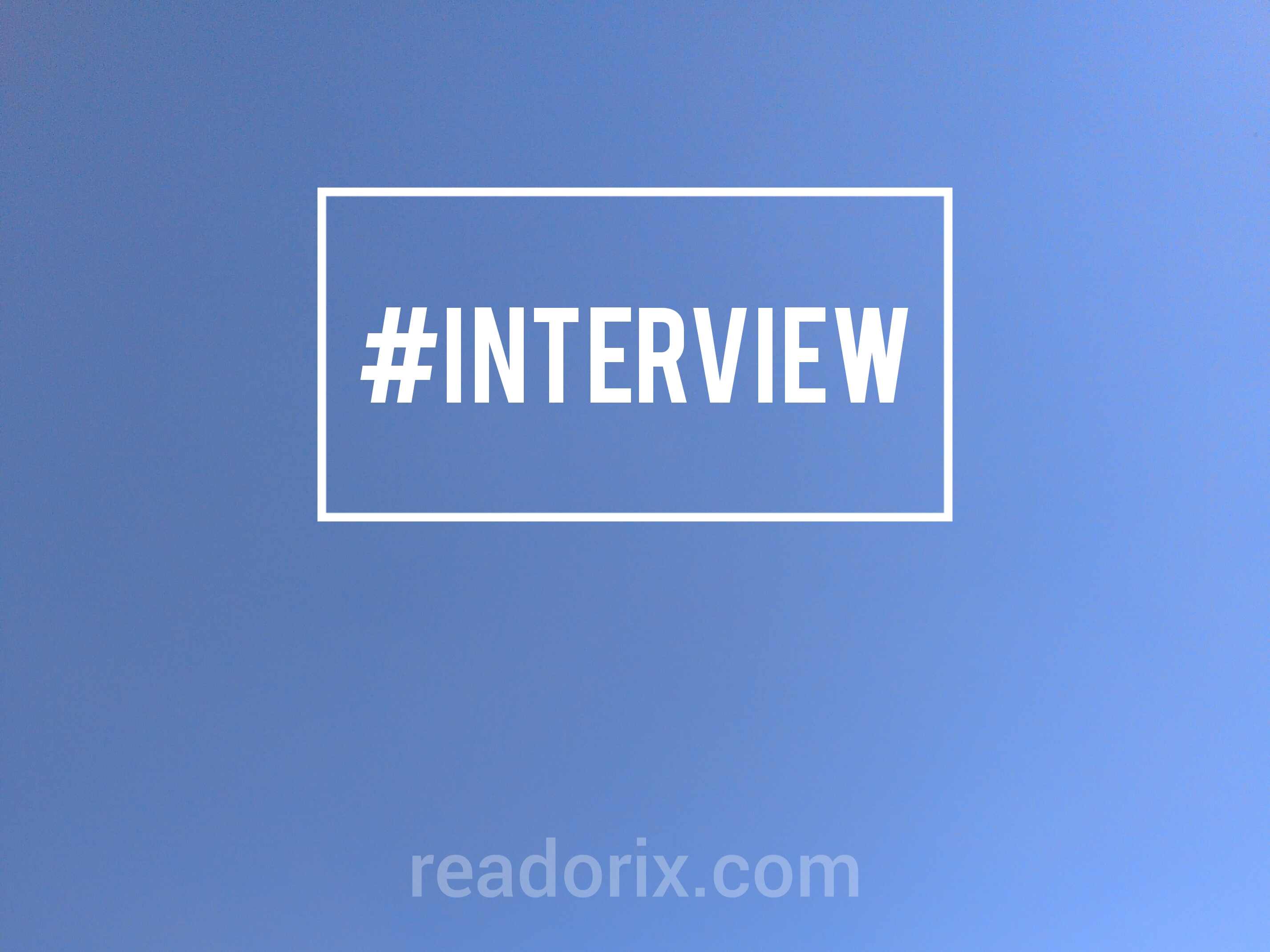
Expert Tips for Tackling Frequently Asked Interview Questions
- 31 Aug 2024
- 419 Views
Interviews can be daunting, but with the right preparation, you can tackle even the trickiest questions with confidence. Below, we have compiled a list of commonly asked interview questions along with tips and examples to help you craft compelling responses.
1. Tell Me About Yourself
Tip: Start with a brief summary of your professional background, highlight key achievements, and explain how your experience aligns with the job you are applying for.
Example:
"I have over five years of experience in digital marketing, specializing in content creation and SEO strategies. In my previous role at XYZ Company, I successfully increased website traffic by 40% through targeted content and strategic link building. I am excited about this opportunity because I believe my skills in digital marketing and my passion for creative problem-solving align perfectly with the goals of your team."
2. What Are Your Strengths?
Tip: Focus on strengths that are relevant to the job you are applying for. Provide specific examples to illustrate how these strengths have benefited previous employers.
Example:
"My greatest strength is my ability to analyze data and translate it into actionable insights. For instance, at my last job, I used data analytics to identify a key market trend, which led to a successful campaign that boosted our conversion rate by 25%."
3. What Are Your Weaknesses?
Tip: Choose a real weakness but one that you are actively working to improve. Show how you have taken steps to address this weakness.
Example:
"I sometimes struggle with delegating tasks because I prefer to ensure everything is perfect. However, I have been working on this by building trust with my team and improving my delegation skills through training and feedback. This has helped me become a more effective manager."
4. Why Should We Hire You?
Tip: Highlight your unique skills and experiences that make you the best fit for the role. Connect your background to the job description and company needs.
Example:
"You should hire me because I bring a unique blend of creativity and analytical skills. My background in graphic design and data analysis allows me to approach problems from multiple angles. Additionally, my proactive attitude and track record of meeting deadlines make me a strong fit for your team."
5. Where Do You See Yourself in Five Years?
Tip: Show that you have thought about your career path and how this role fits into your long-term goals. Avoid answers that sound too generic.
Example:
"In five years, I see myself in a leadership role within your company, helping to drive innovative projects and contribute to strategic planning. I am eager to grow with the company and take on new challenges that will help me develop my skills and contribute to the team's success."
6. Why Do You Want to Work Here?
Tip: Research the company beforehand. Mention specific aspects of the company that attract you, such as its culture, values, or recent achievements.
Example:
"I am impressed by your company’s commitment to sustainability and innovation. Your recent initiative to reduce carbon emissions aligns with my personal values and professional interests. I am excited about the opportunity to contribute to a company that is making a positive impact on the environment."
7. Describe a Challenging Situation You’ve Faced
Tip: Use the STAR method (Situation, Task, Action, Result) to structure your answer. This method helps you provide a clear and concise response.
Example:
Situation: "At my previous job, we faced a significant drop in user engagement on our website."
Task: "My task was to identify the cause and implement a solution."
Action: "I conducted a thorough analysis, identified that the issue was due to outdated content, and led a content overhaul."
Result: "This action resulted in a 30% increase in user engagement over the next three months."
8. How Do You Handle Stress?
Tip: Share specific strategies you use to manage stress and provide an example of how these strategies have helped you in a past role.
Example:
"I manage stress by staying organized and prioritizing tasks effectively. For example, during a busy project period, I used a project management tool to track deadlines and set clear milestones. This approach helped me stay on top of my tasks and maintain a healthy work-life balance."
9. Can You Explain This Gap in Your Employment History?
Tip: Be honest and provide a reasonable explanation. Focus on how you used the time productively and what you learned from the experience.
Example:
"I took a six-month break to care for a family member. During this time, I kept up with industry trends and completed a certification course in project management. This experience enhanced my skills and has prepared me for this new role."
10. How Do You Prioritize Your Work?
Tip: Describe your method for organizing and prioritizing tasks. Provide an example of a time when this method was particularly effective.
Example:
"I prioritize my work by using a combination of to-do lists and time management tools. I start each day by identifying the most critical tasks and setting achievable goals. For instance, in my previous role, this approach helped me complete a major project ahead of schedule while managing daily responsibilities effectively."
11. Tell Me About a Time You Worked on a Team
Tip: Highlight your teamwork skills by discussing a specific project or situation where collaboration was key. Use the STAR method if applicable.
Example:
Situation: "On a team project to launch a new product, we had tight deadlines and diverse opinions."
Task: "I was responsible for coordinating between departments and ensuring everyone’s ideas were integrated."
Action: "I organized regular meetings, facilitated open communication, and worked to resolve conflicts."
Result: "The project was completed on time, and the product launch was a success, receiving positive feedback from customers."
12. How Do You Stay Motivated?
Tip: Share what drives you and how you maintain enthusiasm for your work. Provide an example of how your motivation has led to positive outcomes.
Example:
"I stay motivated by setting personal goals and celebrating small achievements along the way. For instance, in my previous role, I set a goal to improve our customer satisfaction scores. By focusing on incremental improvements and tracking our progress, I was able to contribute to a 15% increase in satisfaction over six months."
13. What Is Your Greatest Professional Achievement?
Tip: Choose an achievement that demonstrates your skills and impact. Describe the situation, your actions, and the positive results.
Example:
"My greatest professional achievement was leading a cross-functional team to develop and launch a new software product. I spearheaded the project management efforts, coordinated between developers and marketing, and ensured we met our deadlines. The product exceeded sales expectations and received excellent user reviews."
14. How Do You Handle Criticism?
Tip: Show that you are open to feedback and can use it constructively. Provide an example of a time when you received criticism and how you responded positively.
Example:
"I handle criticism by viewing it as an opportunity for growth. For example, after receiving feedback on a report I prepared, I took the suggestions seriously, made the necessary revisions, and improved my report-writing skills. This experience helped me produce more accurate and detailed reports in the future."
15. Describe a Time When You Took Initiative
Tip: Provide an example of a situation where you went above and beyond your regular duties. Explain the impact of your initiative.
Example:
"Noticing a gap in our customer service process, I took the initiative to propose and implement a new feedback system. I designed a survey, collected responses, and worked with the team to address the common issues raised. This initiative improved our customer satisfaction rates and streamlined our service process."
16. How Do You Handle Conflicts at Work?
Tip: Discuss your approach to resolving conflicts and provide an example of a time when you successfully managed a disagreement.
Example:
"When conflicts arise, I approach them with an open mind and focus on finding a mutually beneficial solution. For instance, when two team members had a disagreement about a project approach, I facilitated a meeting to understand both perspectives and helped them reach a compromise that satisfied both parties and kept the project on track."
17. What Is Your Salary Expectation?
Tip: Research industry standards and be prepared to provide a salary range. Justify your expectation based on your experience and skills.
Example:
"Based on my research and my five years of experience in this field, I am looking for a salary in the range of $60,000 to $70,000. This range reflects the industry average for this position and takes into account my relevant skills and achievements."
18. Why Are You Leaving Your Current Job?
Tip: Be honest but diplomatic. Focus on the positive reasons for your move, such as seeking new challenges or career growth.
Example:
"I am seeking new opportunities to advance my career and take on more leadership responsibilities. While I have learned a great deal in my current role, I am excited about the potential for growth and new challenges that this position offers."
19. What Do You Know About Our Company?
Tip: Demonstrate that you have researched the company thoroughly. Mention specific details about the company’s mission, values, or recent achievements.
Example:
"I am impressed by your company's dedication to innovation and community involvement. I read about your recent initiative to support local charities, which aligns with my personal values. I am excited about the prospect of contributing to a company that makes a positive impact both in the industry and the community."
20. Do You Have Any Questions for Us?
Tip: Prepare thoughtful questions that show your interest in the role and the company. Avoid questions that can easily be answered by reading the job description or company website.
Example:
"Yes, I do have a few questions. Can you tell me more about the team I would be working with? What are the key challenges the team is currently facing? Also, how do you measure success for this role?"
----
By preparing for these common interview questions with thoughtful responses, you will be well-equipped to make a strong impression and increase your chances of landing the job. Good luck with your interview!